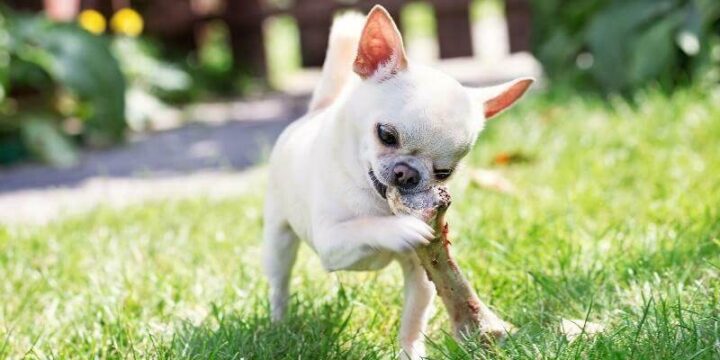“Tibia” honest, bones just aren’t suitable for every dog! Whilst raw bones are safer than cooked bones (which are more brittle, and therefore more likely to crack into dangerously sharp pieces), raw bones can still cause problems. Here’s a few reasons to take care with bones for your pet:
Bones can break teeth
Unfortunately, some dogs don’t know when to quit, and will determinedly chew on a solid piece of bone until they break a tooth! Bones are the most common cause of slab fractures (where the side of a tooth is broken off) in dogs. Not only is this painful, but can lead to bacteria entering the tooth and causing a severe infection in the jaw.
Bones can lead to choking
Ideally, all dogs should be supervised if they are chewing on a bone, but particularly those who are “gulpers” (i.e. likely to try and swallow a piece of bone as soon as it is small enough to fit inside their mouth), who are at increased risk of life-threatening choking.
Bones can trigger gut irritation
Unfortunately, some sensitive-stomached dogs just can’t handle bones and will develop unpleasant symptoms of gut upset.
Bones can cause constipation
When dogs eat a large amount of bone in one go, pieces of bone can unfortunately bank up in their colon and get stuck, leading to severe constipation, pain and unwellness. In some cases, these dogs require an anaesthetic and careful manual removal of the dry, hard faecal material for treatment.
So, what can I offer my dog to chew instead of bones?
Safer options for chewing include:
- Kong toys stuffed with peanut butter, tinned food or cream cheese
- Dental chews with some bendiness to them (with the exception of rawhide, which can pose a choking risk)
- Raw carrot sticks
- Dried sweet potato pieces
Ask our vets if you’d like more information on the safest chewing options for your dog.


